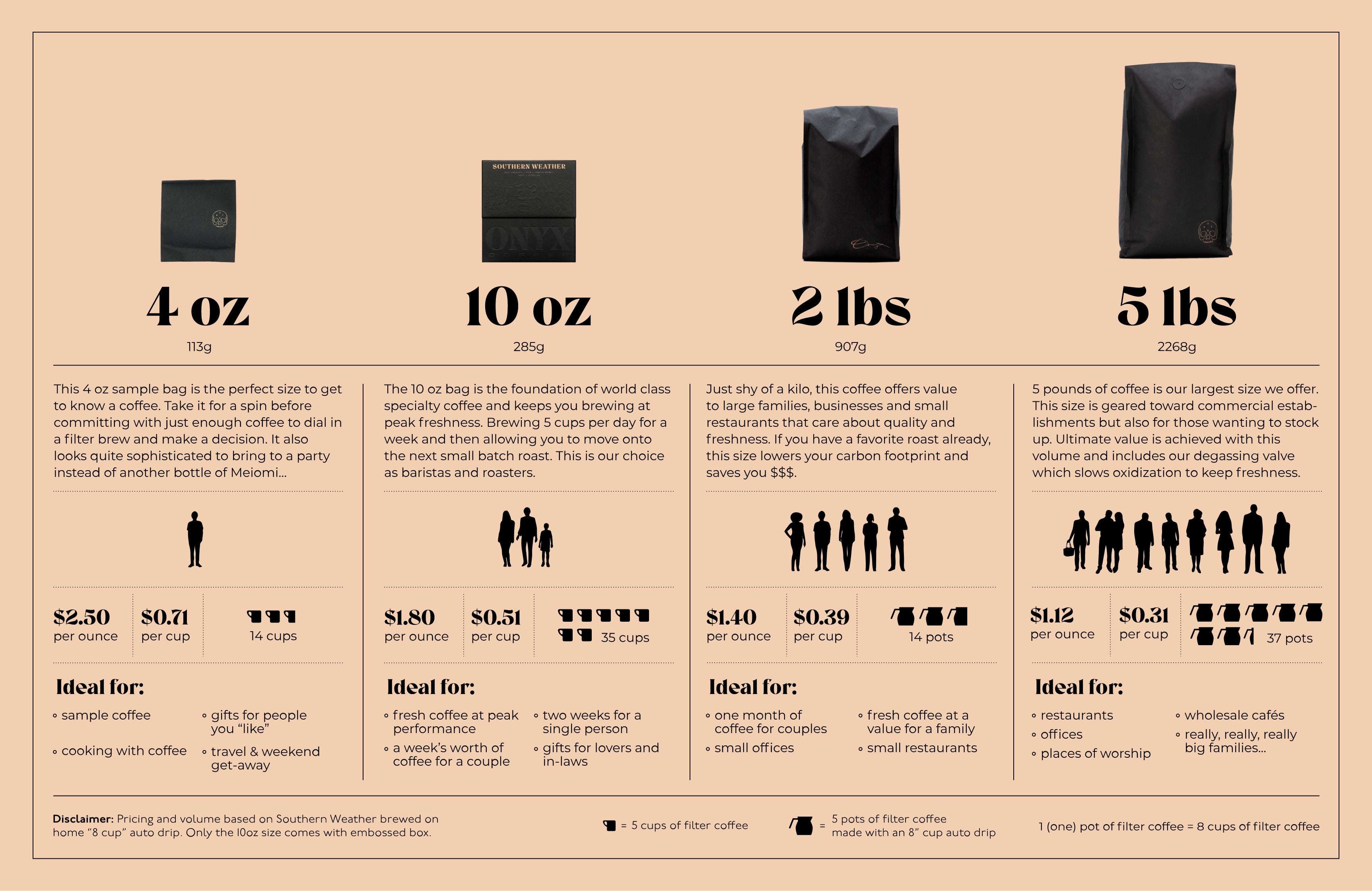Story
It all started back in the NBA playoff Bubble in 2020. Jimmy Butler, star of the Miami Heat, opened an impromptu coffee shop in his hotel room and called it BIGFACE. Being basketball fans and stuck at home like everyone else during 2020, we were excited to see our passions collide. Fast forward to August 2022, when ONYX and BIGFACE got the surreal opportunity to travel to Cundinamarca, Colombia, to visit one of our favorite farms: La Palma y El Tucan. Nestled in a perfect micro-climate and specifically planted with exotic varieties, the farm cultivates some of the world's most awarded coffees. Quality and passion are woven into everything they do: the coffee trees are fertilized using bio-innovation practices and processed using cutting-edge techniques, resulting in incredibly complex, unique coffees.
Together, ONYX and BIGFACE cupped coffees and chose the absolute best on the table. There's magic in this collaboration- two different groups, the best at what they do- coming together to create something truly unique. As we tasted around the table, we were all inherently drawn to sample #23. The significance of this is not lost on any of us.
We want you to enjoy this special collaboration, a bridge between the best of two worlds, perfectly timed for the holidays. Cheers!
LA PALMA Y EL TUCÁN
Time and time again, La Palma y El Tucán has proven their greatness by producing some of the world’s best micro-lots. We turn to them each season not only for high-end competition lots but also for each season’s special releases. Our shared history spans back to 2013, when Jon Allen, co-owner of Onyx, first met Filipe and Elisa when sourcing coffee in Colombia. This initial meeting launched a years-long friendship and partnership that produced an article in Fresh Cup Magazine and resulted in Onyx being one of the first coffee roasters to purchase from La Palma. This partnership runs deeper than just transactions across countries but spans years of meals, trips, failed experiments, and shared victories. In 2017, Dakota, Green Buyer for Onyx, spent four months living in a cabin on the farm learning the intricacies of coffee production and QC cupping on a farm level, which was instrumental in him finding his way to the Onyx team. Over the course of the Onyx shared experience with the team of La Palma Y El Tucán, it is clear that Felipe and Elisa have a unique passion and vision for Colombian coffee. The farm has a unique layout with each variety planted in an artful way that encourages exceptional production and is also beautiful. The coffee is picked as it ripens by a team of women whose job is to make pass after pass, day after day, to choose only the best cherries. La Palma’s small wet mill is designed to showcase how fermentation can encourage coffees to show flavors you could only dream of. Their dedication to quality is rivaled by their desire to change the future of production in Colombia - to create new ways for producers to approach farming, processing, marketing. This, in turn, could create incredible change for generational coffee producers in Colombia and many more to come. It is clear that they care deeply about the future of coffee production in Colombia. Everything they do is based on creating jobs for people in their communities, offering an opportunity to neighboring producers, and encouraging coffee as a viable, sustainable way of life.
NATURALLY PROCESSED COFFEE
Natural coffees are beautiful…Okay, natural coffees are beautiful when done properly, but can be equally terrible when things go wrong. Natural processing, or dry processing, refers to the act of drying and fermenting coffee inside the cherry. Long before the age of portafilter tattoos and dual-boiler home espresso machines, coffee was picked and dried this way out of convenience. It is, to this day, still the most convenient and economically friendly way to process coffee cherries. (It’s estimated that dry-processing can use up to 90% less water than the washing process.) So why isn’t all coffee processed this way? Well, as coffee made its way across the world, it was commoditized and standardized, just like all other products spread by colonialism, but that’s a whole other story... Adding to the boom of washed processing, the natural process method can be tricky to get right, due to the delicate nature of fermentation and drying. What does all this have to do with the final cup? Well, when you leave the skin and fruit of the coffee cherry on the seed throughout fermentation and drying, that fruit begins to break down, imparting esters that impart delicate florals and big fruit notes into the seed that survive the roasting process. If it’s rushed or handled incorrectly, this fruit rot can lend off-flavors to the coffee, making the final cup dirty or ‘fermenty.’ Basically, that single cherry begins to slowly decay, and controlling that delicate action through advanced technique and metrics allow us, lucky folks, to drink wonderfully floral and fruity coffees. We have long promoted natural processed coffees, and this La Palma Natural Gesha is just one of the reasons we do.



